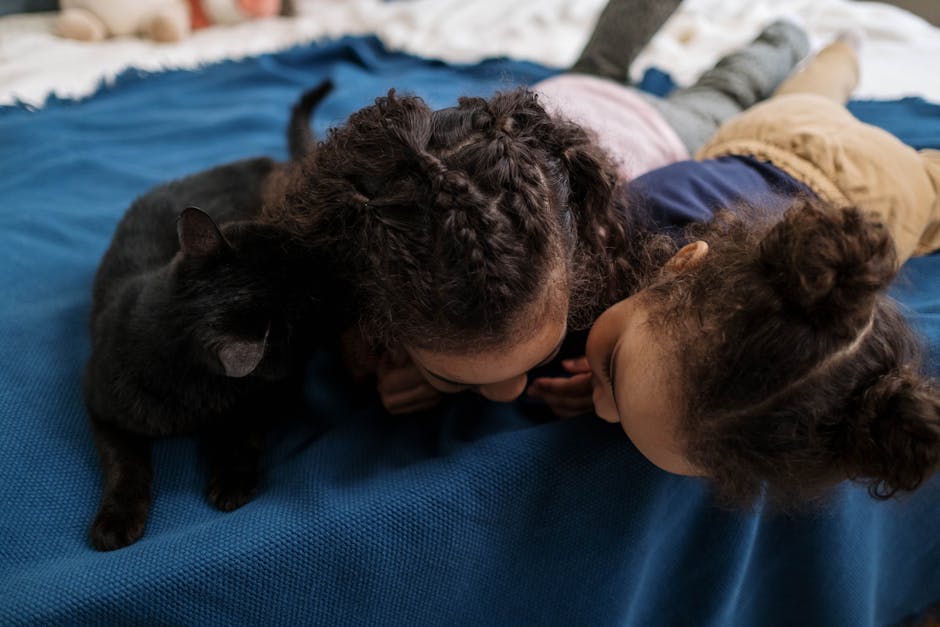As our feline companions age, their needs evolve, requiring a shift in our approach to care. Understanding the nuances of geriatric cat care empowers us to provide the best possible quality of life for our senior felines, allowing them to enjoy their golden years with comfort and dignity.
Recognising the Signs of Seniority
Determining a cat’s age isn’t always straightforward, and age-related changes can manifest differently in each individual. Observing subtle alterations in behaviour, appetite, and physical attributes can offer invaluable clues. Senior felines might exhibit decreased activity levels, changes in grooming habits, a reduced tolerance for play, or a diminished interest in their usual routines. Urinary issues and increased sleep are also potential signs. These shifts can signal underlying health concerns, thus emphasizing the critical importance of prompt veterinary consultation.
Dietary Adjustments: Fueling the Senior Years
Maintaining an optimal nutritional intake is paramount for senior cats. Age-related changes in metabolism, dental health, and digestive function often necessitate adjustments to their diet. Specialized senior cat foods are frequently formulated with lower protein content and increased levels of easily digestible nutrients, thus promoting better digestion and helping to manage potential kidney or liver issues. Additionally, these formulas often include added antioxidants and joint support nutrients, crucial for maintaining overall health. Consult your veterinarian to determine the specific dietary needs of your individual cat, and be sure to provide fresh, clean water at all times.
Physical Wellness: Keeping Active and Agile
As cats age, their physical capabilities decline. Encouraging regular movement and promoting muscle strength and joint health is essential. Adequate exercise, in the form of play sessions and exploration time, is often neglected. This can lead to decreased mobility, muscle atrophy, and potential joint issues. Consider adjusting play styles to suit their energy levels and offer interactive toys or slow feeders to provide gentle exercise while promoting engagement. Regular grooming remains important as well, ensuring hygiene and providing comfort for arthritic joints. Monitoring weight is important as obesity exacerbates existing health problems in senior cats.
Addressing Common Health Concerns
Geriatric cats are prone to specific health concerns, often requiring specialized veterinary care. Conditions such as kidney disease, hyperthyroidism, arthritis, dental disease, and vision impairment are prevalent in aging felines. Regular veterinary check-ups become even more crucial to detect these issues early, when treatment options are more effective. Proactive blood tests and urine analysis can be instrumental in early diagnosis and management of underlying ailments.
Adapting the Living Space for Senior Comfort
Senior cats may experience mobility limitations and require adjustments to their living environment to facilitate ease of movement and access. Consider removing potential hazards, such as stairs or high shelves, that might pose a challenge for your senior companion. Ensure easy access to food and water bowls, litter boxes, and comfortable resting areas. Adding soft bedding and supportive cushions can enhance their comfort and promote better sleep quality. Creating a safe and familiar space is essential for promoting their wellbeing.
Maintaining Mental Stimulation
Senior cats can retain cognitive function even as they age. Providing mental stimulation through puzzle feeders, interactive toys, and engaging enrichment activities can maintain their mental acuity. Rotating toys and introducing new smells and sounds can spark interest and keep their minds active, potentially slowing the progression of cognitive decline.
The Importance of Veterinary Care
Throughout their senior years, regular veterinary check-ups are paramount. Proactive monitoring and early intervention can significantly improve the quality of life for older cats. Veterinarians are invaluable resources in identifying potential health concerns, tailoring treatment plans, and managing age-related conditions. This ensures early interventions that improve outcomes and quality of life.
Holistic Well-being: Beyond the Physical
Nurturing a senior cat’s emotional well-being is just as critical as maintaining their physical health. Ensure a familiar and consistent routine and provide plenty of affection and attention. Respect their pace and acknowledge their decreased tolerance for boisterous activity. Spend quality time interacting with your senior feline companion, recognizing the subtle signs of affection and offering reassurance and comfort.
A dedication to compassionate care that includes all the aspects discussed diet, physical wellness, health concerns, environmental adjustments, mental stimulation, and veterinary care equips you to provide your geriatric cat with a dignified and comfortable final chapter in their life. Through thoughtful care and attentive monitoring, you can ensure that your senior feline companion thrives in their golden years.
